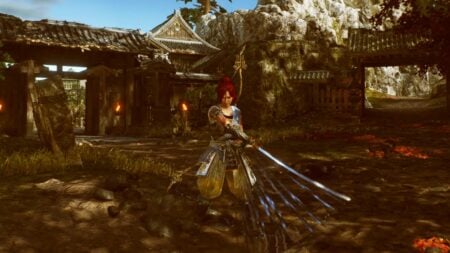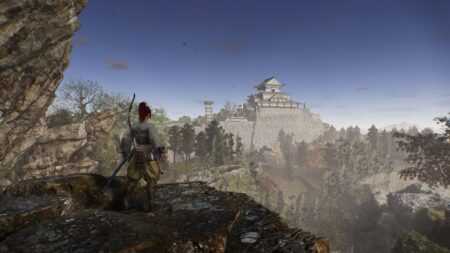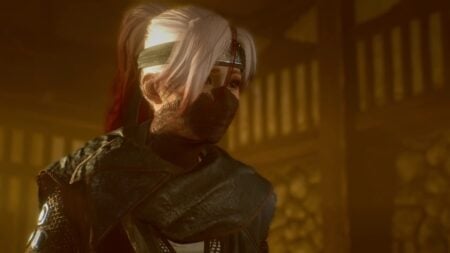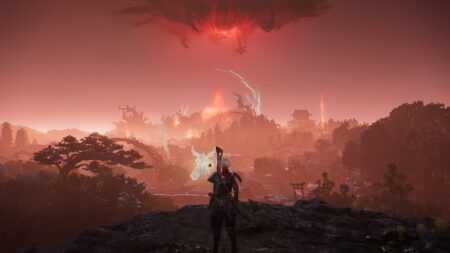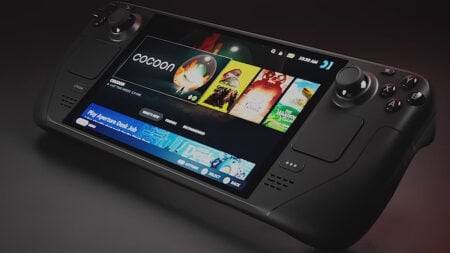Skip To...
Ever since Assassin’s Creed Mirage was announced, fans put a lot of pressure on Ubisoft as the company announced this game would return the franchise to its origins. After horribly deviating from the stealth roots to introduce RPG mechanics and extremely large and cluttered worlds to explore, people wanted quality instead of quantity. It gives me great pleasure to report that during my game review of Assassin’s Creed Mirage, Ubisoft finally delivered its promise. While it’s not the best game in the franchise, it’s definitely the one that returns to the series’ roots.
(Updated on August 13, 2024 – Updated links).
Assassin’s Creed Mirage Review: A New Dawn
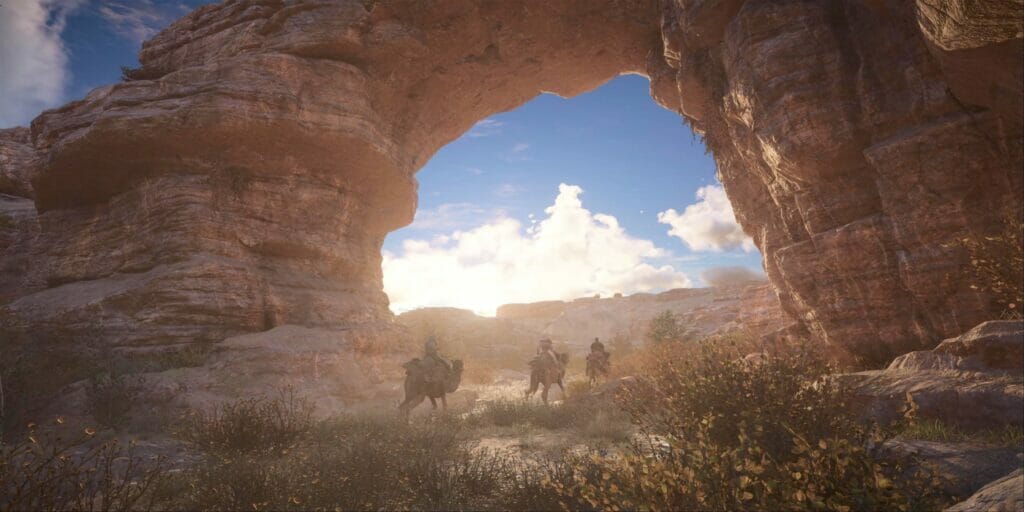
For me, Assassin’s Creed as a series was always about stealth first and combat second. The latest games shifted this as it felt like combat was given priority, while stealth was a secondary albeit necessary mechanic. Despite the direction the games were taking, I decided to keep buying them. There was a small trace of faith and hope that the franchise would return to what it was. So yes, I played Origins, Odyssey, and Valhalla. Sadly, the latter killed my interest in the franchise, and I didn’t pay attention to the new installment.
On the one hand, I’m glad because when I did my game review of Assassin’s Creed Mirage, I felt like Anton Ego when he tasted Ratatouille; I was transported to the Holy Land of the first game, to the streets of Constantinople — I was finally home.
Related:
Top 10 Most Anticipated Games Coming in October 2023
Story: From Rags to Hooded Robes

One of the things Ubisoft has used to describe Assassin’s Creed Mirage in its narrative is a coming-of-age story. The story centers on Basim, a thief from Baghdad who rises through the ranks of the Hidden Ones to become a master assassin. Before I get into details, I want to mention that if you played Valhalla and saw all of its endings, you will enjoy the story a bit more because of some hints. If not, no problem either. The narrative is very accessible as there are no present-time shenanigans, which sometimes I think Ubisoft doesn’t know where it’s going anymore. So, I appreciate that the company has focused on fantasy action and historical facts.
Going back to Basim, he is a young thief looking to get ahead, like many thieves’ stories of that time. Here, everything changes when Basim wants to surprise the Hidden Ones, and after some unfortunate events, he ends up escaping with his new brotherhood of assassins. After the mandatory Horizon Zero Dawn-style training sequence, we have Basim with a glorious beard and ready to return to Baghdad to prove that he has everything to be called an assassin.
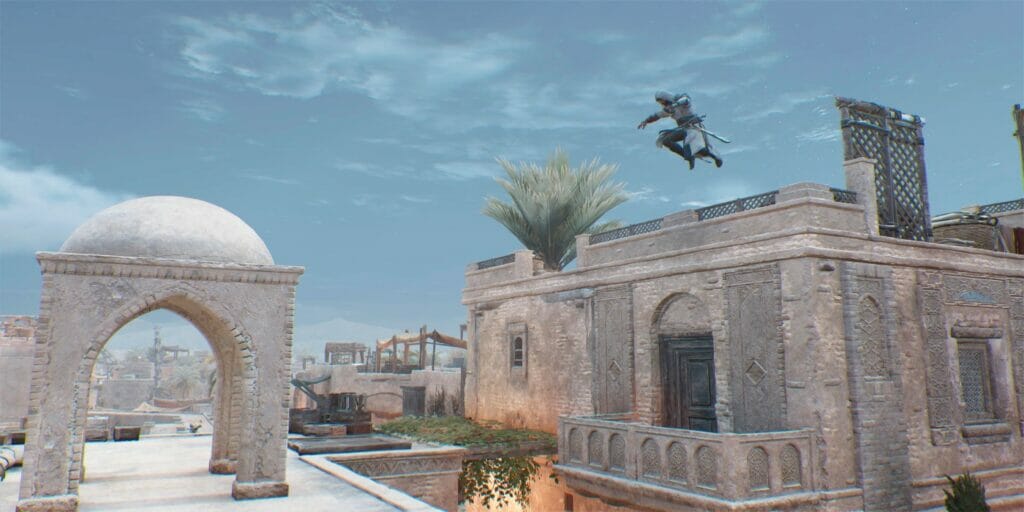
Related:
8 Space RPGs Better Than Starfield
At first, Basim didn’t make much of an impact on me. He struck me as the reckless character who causes an accident because he wants to show something, but then I remembered, “Wait, aren’t most Assassin’s Creed protagonists like that?” This was a good indication that Ubisoft remembered how to build a good character. Basim’s personality improves as he grows as an assassin, does main and optional missions, and comes out even better thanks to his voice actor.
After having a Spartan and Viking who beat people before they spoke, it was refreshing to have a protagonist who knows what is involved in being an assassin. Talking to people, changing his tone to get information, even disguising himself as a servant and acting like one. I finally felt like I was controlling a Hidden One once again instead of a person who needs to have a hidden blade to justify the title of the game.
As for the story, it is excellent. It’s not the best because, at the end of the day, we all consider Ezio’s to be the pinnacle of the franchise’s storytelling, but he had three games, so we can’t compare. What I can say is that it is an isolated story with no jumps between the present and the past and focuses solely on Basim, his growth, and the discovery of his past, which, without spoilers, is going to make more than a few people’s jaws drop.
The ending is fantastic and justifies why Basim is the way he is in Valhalla. Also, the last chapter of the game hints at why the game is called “Mirage,” which is one of the best things I’ve seen Ubisoft do in years.
Gameplay: An Assassin’s Playground
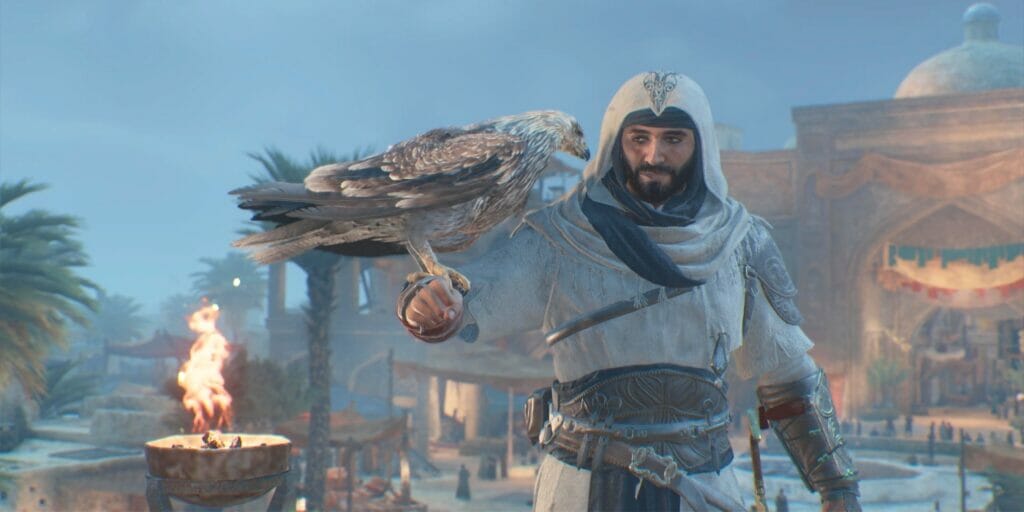
Social stealth was, for me, the most characteristic thing of the first games. I still remember holding down the button on my controller to make Altair pass through the guards as if he were a monk or priest, and although it was a small detail, it was innovative for me. From there, they added more things like hiring gypsies or mercenaries to sneak between them. And as you know, from Origins to Valhalla, these things went to the background to give way to unnecessary RPG systems. Fortunately, my game review of Assassin’s Creed Mirage was one of the best, thanks to the return of stealth in one of the most fun ways in years.
I want to start with the mission structure. Each main mission is divided into detective-like cases. You have your investigation board, and you decide which one to go to first. The game does a perfect balance of holding your hand but letting go once you get to your mission location. For example, for one of the big targets, I had to infiltrate a bazaar. Although the game told me how to get there, it didn’t help me as much in finding the identity of my target, something that added to the immersion of my gameplay and made me feel like a Hidden One.
Once you have your target, it’s up to you to decide how to approach it. From big targets to small ones, the game allows you to take them down as you wish. If you want to use your smoke bombs to blind everyone, kill the target, and leave without a trace, you can do so. Would you rather hire musicians to lure the target out of hiding? You can do that too. Stealth lovers are about to play one of the best games of the genre, thanks to Ubisoft finally getting back to doing what made the franchise famous.
One thing I noticed is that some big targets culminated in a sequence very similar to the last Hitman games. On most occasions, you had to do different objectives to be alone with your target. Sometimes, it was getting an audience with the person, and other times, it was waiting for the room to empty so you could finish off the villain. As a fan of the Hitman and Assassin’s Creed games, seeing a combination of them in certain parts made me extremely happy.
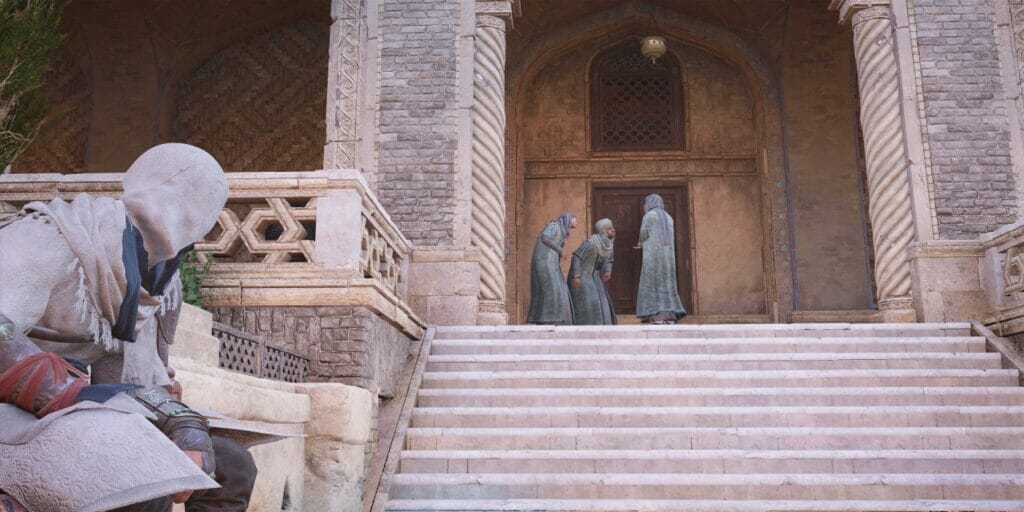
What I did not enjoy at all was the melee combat. I still don’t understand why the developers of this franchise still need to put in elements from other famous genres. Is it for the sake of attracting new generations? I have no idea, but I don’t like it. Why is there a need to put a stamina bar à la Dark Souls for a franchise where it has never been needed?
Besides the frustration of running out of stamina, because Basim seems to be in worse physical condition than Ezio in his last game, the combat is not very responsive. After doing a parry, you have the opportunity to kill the enemy in one hit, of course, if the game would recognize my button inputs and attack said enemy.
Other than that, Ubisoft still seems to be afraid to let go of RPG systems in one of its best franchises. Your weapons and armor have bonuses. Instead of the simple ones like in Revelations, there’s the typical “+55% block” bonus, “your assassinations are heard 50% less”, etc. I don’t know if I’m a big fan of this because I’d prefer something simpler. Frankly, I never paid attention to these bonuses and never switched outfits. I upgraded them, yes, but because I focused on stealth, I could live out my assassin fantasy instead of worrying about unnecessary numbers.
Graphics and Audio: A Blast From the Past

Ubisoft has always been the master when it comes to building ancient cities. They have been so good that their games have helped restore buildings in the real world. So, their work for Assassin’s Creed Mirage is no exception. Although I often complain about the old two installments, their worlds were designed beautifully. Of course, the problem is that Ubisoft always thought that bigger equals better when, in truth, size doesn’t matter.
Baghdad is one of the most beautiful and vivid locations I’ve seen in a game world, and boy, have we had some great cities in recent titles this year. The city of Baghdad and its surroundings is an organism that comes to life thanks to its people and the markets full of shoppers. Its rich and poor neighborhoods are adorned with colors only found in those places. The desert dunes shelter several oases. The crystalline water of these oases generates peace when you see it. All this is a visual delight, thanks to the fantastic work done by the Ubisoft team.
Related:
5 Anticipated Games Most Likely to Get Delayed
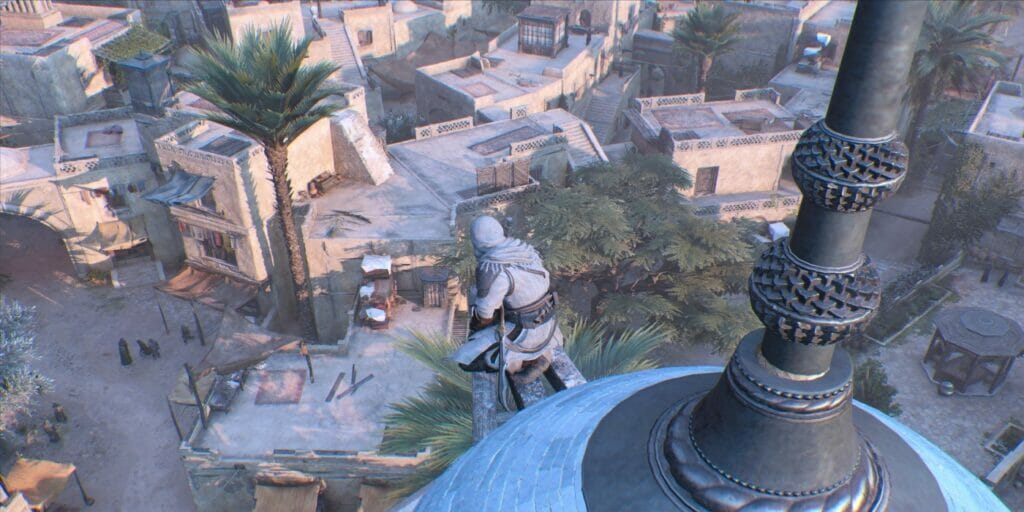
When it comes to the audio, I can recognize more the work of the city sounds than the music. I don’t want to say that the music was bad. In fact, there’s a part where you hear the franchise’s iconic track that gave me goosebumps of excitement. But, in the end, I remember more the amalgamation of voices in the bazaar, the people talking in the city streets, and the animals in the desert.
And before closing this game review of Assassin’s Creed Mirage, I want to discuss bugs and glitches. Yes, there are. Still, I experienced two or three bugs in my 20 hours compared to the 50 bugs I experienced when I played Unity for one hour. The only bugs I saw were visual and audio. In some sequences, the characters’ mouths didn’t move while the sound played, and in another one, a cinematic didn’t play, and the characters stood still in strange poses. Fortunately, nothing broke my game or made me reload my file. This is, by far, Ubisoft’s most polished game.
Conclusion: Back to the Start
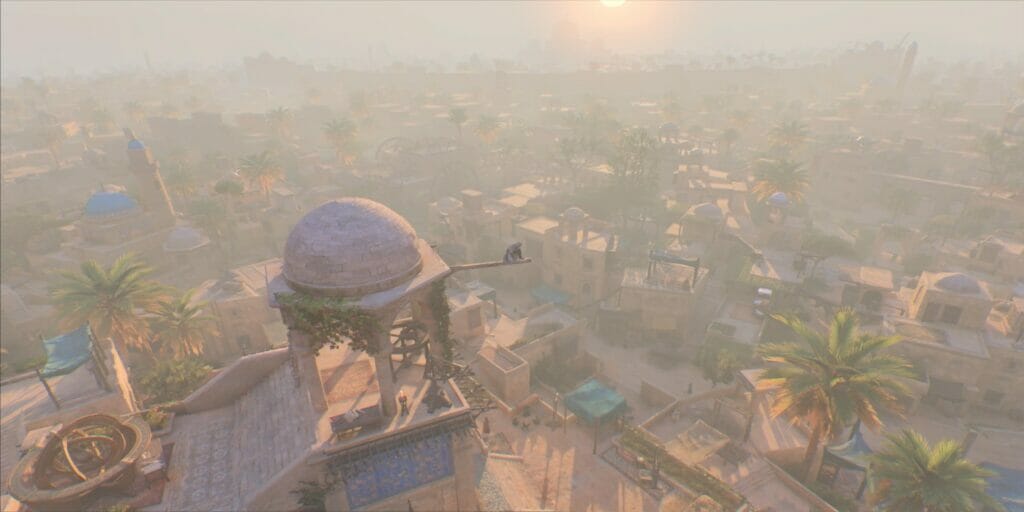
My time during my Assassin’s Creed Mirage game review ignited my love for the franchise again. That flame that the Nordic lands extinguished was ignited by Basim’s adventures in Baghdad. Navigating the city, looking for the best opportunity to carry out an assassination, was a joy I hadn’t felt in a long time. It’s been years since I looked at my watch and realized it was 3 a.m., and I was still looking for ways to infiltrate a building.
Ubisoft has managed to return the franchise to its roots. However, I still think some details can be simplified to make the series feel what it was. The company should let go of the “trendy” formulas and focus on the originality that made this saga famous. Fortunately, Assassin’s Creed Mirage is the first step toward this, and I can’t wait to see what the team behind this franchise has in store for us.
Review copy given by Publisher.
Assassin's Creed Mirage (PlayStation 5 Reviewed)
Assassin's Creed Mirage is Ubisoft's first effort to return the franchise to its roots and it succeded at doing so.
Pros
- A gorgeous open world with meaningful activities.
- Superb stealth mechanics.
- An entertaining narrative.
The Bad
- Unecessary RPG systems.
- Not the best facial animations.


